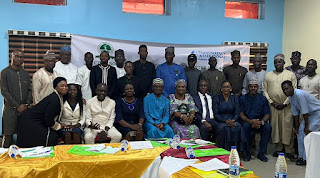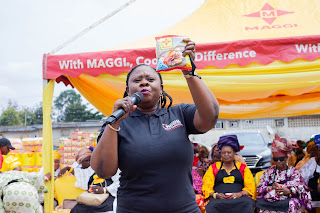Coalition of CSOs, professionals deliberate on 2016 health budget
•Calls for increase funding, timely release
Paucity of funds that is rocking major institutions in the country and have been taken crippling effect on proper health care delivery would soon nosedive to public health crisis, unless there is urgent government’s intervention in strengthening of health care financing as concerns 2016 budget. Raising the concern on Tuesday, were stakeholders, experts and civil society organisations who decried the continued absence of budgetary provisions for key and essential line items for child and family health, even in the highly debated 2016 budget.
The group expressed grave concerns over what it considers a disparagingly rising low health budget, indices in the country as well as the missing N60 billion in the 2016 budget, equivalent of one per cent of consolidated revenue guaranteed by the National Health Act to fund basic health. These were part of the issues which took centre stage at a workshop on 2016 budget with regards to healthcare, organised by the Partnership for Advocacy in Child and Family Health (PACFaH) in coalition with Civil Society Organizations (CSOs), experts, professional health associations, private sector, among others at the at the Tamarind 1 Hall of the Sheraton Hotel and Towers Abuja.
The PACFaH coalition advocates for mobilization, increased funding, timely release, and efficient utilization of resources Child and Family health generally and specifically Nutrition, Family Planning, Routine Immunization and Childhood Killer Diseases. The group lamented that President Muhammadu Buhari’s N6.08 trillion “budget of change” only provides N1, 448 per capita health spending, lower than the N1, 546 per capita spending in 2015, compared with a recommendation of N6, 908 by the World Health Organisation.
They therefore challenged the federal government to ensure transparency in the implementation of the 2016 health budget. NMA President, Dr. Lawrence Obembe, said: “There are lot of loopholes, lacunas deficiency in the 2016 health budget, we also know that the percentage is very low, it’s about 3.7 per cent. Nigeria’s commitment is supposed to be 15 per cent.”
Obembe also called for strengthening of health care financing as a way to address various health challenges in the country. But in a communique at the end of the workshop signed by Chairman of the occasion, Prof. Ben Anyene and PACFaH National Coordinator, Dr Judith-Ann Walker, they observed that the “prospects and opportunities for domestic mobilising for health financing of the 2016 budget compliance with inherited and new international obligations in the health sector- benefits and challenges” are the key to attaining set goals in the sector.
They called for “adequate funding in the context of the deficit financing- the best arguments for the health sector advocate. Tracking timely releases, value for money and cost effectiveness of the health budget after releases-most effective strategies. “Health financing is challenged by dwindling revenue, poor fiscal management of resources and weak private sector financing.”
They also maintained: “The framework and guideline for implementation of the National Health Act 2014 is yet to be put in place, including the non-recognition of the provisions of the 2014 National Health Act in the 2016 budget proposal.”
“The absence of budgetary provisions for key and essential line items like child and family health, service wide votes has not been disaggregated for many line items in the 2016 health budget. Example is the allocation for the MDGs and SDGs,” they observed.
According to them, government should put in place a plan and framework for a graduated increase in funding to reach the FGN’s commitment of 15 per cent of annual budget for health in line with the Abuja 2001 declaration.
The group observed the following: Health financing is challenged by dwindling revenue, poor fiscal management of resources and limited private sector financing; The 2016 health sector budget of the FGN is characterized by lack of transparency, responsiveness and misplacement of priorities.
The meeting made the following recommendations: “Federal government should take immediate steps to ensure full implementation of the provisions of the National Health Act 2014; must insist on full use of the new zero-based budgeting framework and template by all MDAs and especially the FMoH in subsequent budgets.”
The group said: “FGN should establish a platform for health financing interface between Federal, State, and Local Governments to increase synergy and reduce duplication and wastages; more funding options should be explored to ensure sustainable health financing for better health outcomes.” The group called on the National Assembly to strengthen its oversight roles and functions to ensure more transparency and accountability in the budget process.
The meeting urged government to ensure that it keeps all its commitments and obligations on health financing including those made Nationally and Internationally (bilateral and multilateral), adding; “FMoH should work for improvement in targeted capital expenditure in the health sector budget.”
According to them, “Government should put in place a plan and framework for a graduated increase in funding to reach the FGN’s commitment of 15 per cent of annual budget for health in line with the Abuja 2001 declaration; must open up the budget process for more transparency responsiveness and accountability,”
“Government should develop a framework for participation of CSOs and Professional Associations in all budgeting process; from conception to design and implementation; CSOs should as a priority, establish a strong coalition for budget advocacy, tracking and accountability,” they said.
The one-day meeting of health-focused CSOs in Nigeria was convened by the Partnership for Advocacy in Child and Family Health (PACFaH), a coalition of eight CSOs: Development Research and Project Center (dRPC); Association for the Advancement of Family Planning (AAFP); Civil Society for Legislative Advocacy (CISLAC); Civil Society Scaling Up Nutrition in Nigeria (CS-SUNN); Community Health Research Initiative (CHR); Federation of Women Muslim Associations (FOMWAN); Health Reform Foundation of Nigeria (HERFON) and Pharmaceutical Society of Nigeria (PSN).
The following Professional Associations were also represented at the convening: Nigerian Medical Association (NMA); Federation of African Nutrition Societies (FANS);Nutrition Society of Nigeria (NSN) and Dietitians Association of Nigeria (DAN); International Confederation of Dietetic Associations (ICDA) and Association of Women Nutritionists in Nigeria (AWNN).
This story was published in Newswatch Times on February 20, 2016.




Comments
Post a Comment